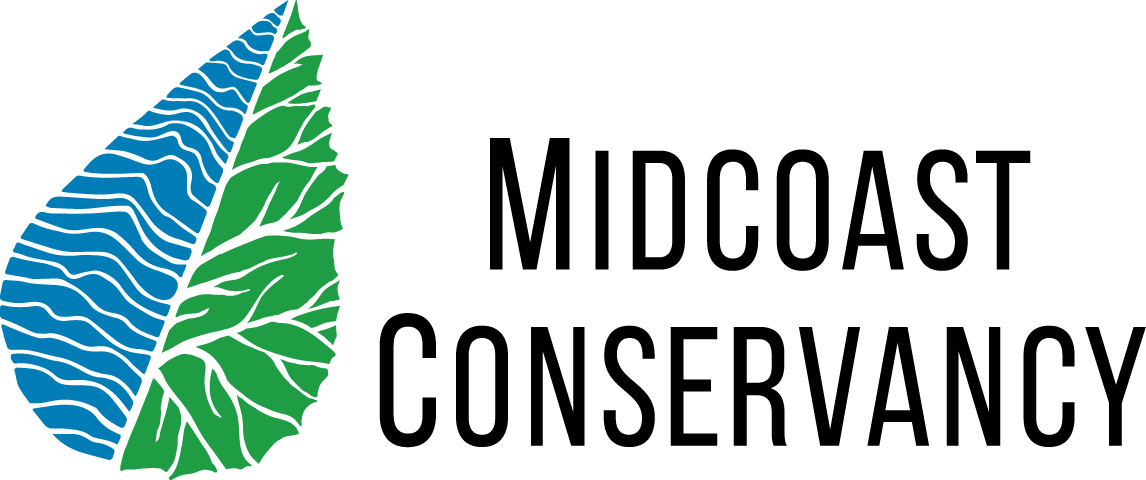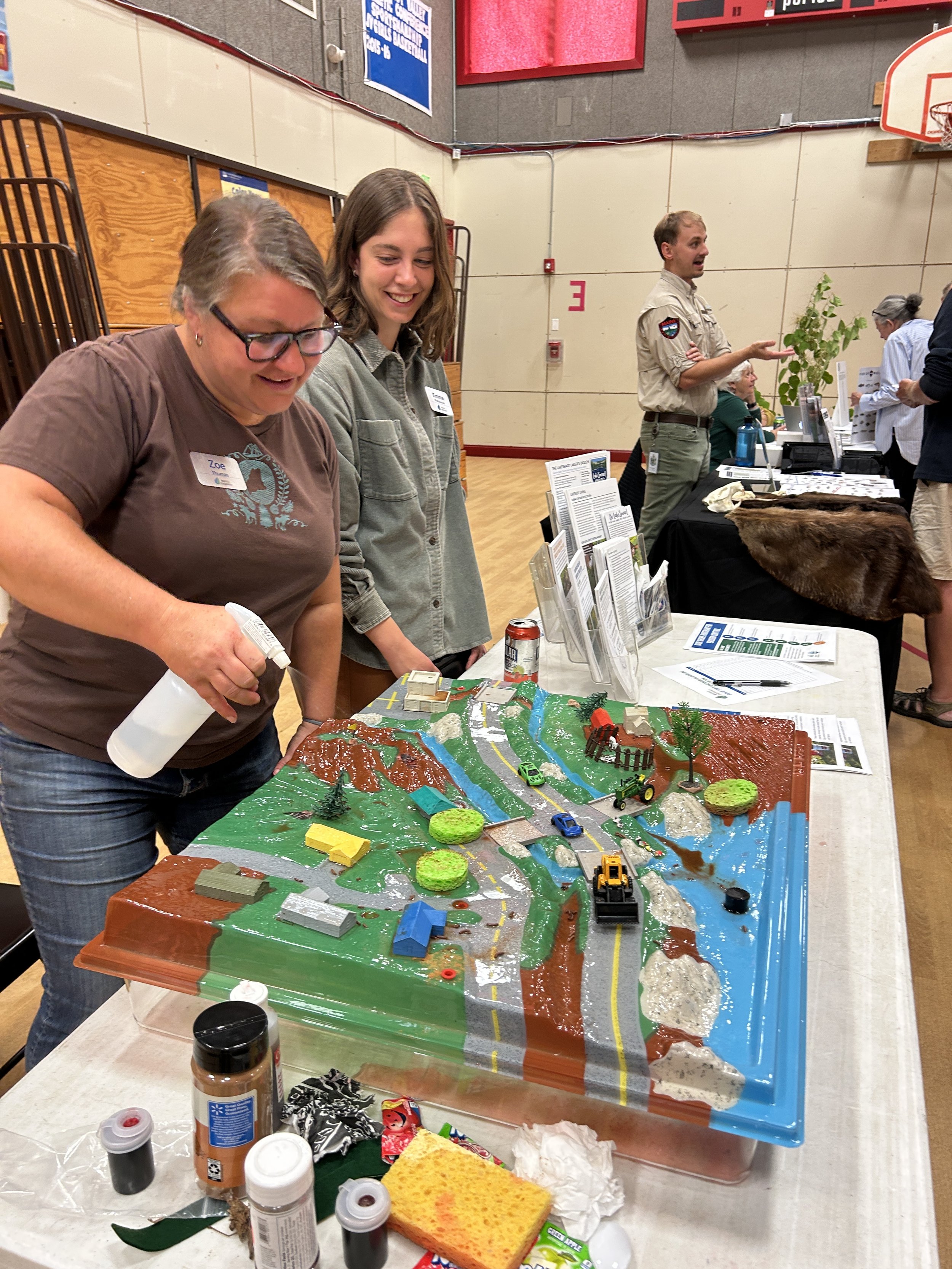Series of three Community Events concludes with State of the Sheepscot
The State of the Sheepscot, our third event in the State of the Midcoast Series was held at Whitefield Elementary School, and exceeded attendee expectations with the information shared about the breadth and impact of our work throughout the Sheepscot watershed!
One attendee and longtime supporter wrote the next morning, “I was really proud to be a member of Midcoast Conservancy last night. What I clearly learned was that you continue to do amazing and truly important work on behalf of all of us who live on and love the Sheepscot.”
Board Chair, Buck O’Herin welcomed attendees and shared information from the Strategic Plan and about directions of future work, and also highlighted an acquisition from earlier in the summer of 327 acres in the Northern Headwaters - an area crucial to supporting the watershed and maintaining its uniqueness.
The formal presentation portion of the event kicked off with Melissa Cote, Sheepscot River Watershed Manager sharing news about Midcoast Conservancy’s current work in the watershed, including two recently completed land conservation projects, new trail updates, educational programming, and her water projects, such as water quality monitoring with the Sheepscot Samplers and Maine Coastal Observing Alliance, and monitoring adult alewives at Branch Pond. Melissa spoke about the ecological importance of the Sheepscot River as it supports all 12 of Maine’s native sea-run fish species, and the lingering impact of dams and log drives on the quality of the instream habitat of the river. A key piece of her presentation explored the geomorphic units (habitat types) of rivers, and why adding complexity, such as trees and boulders, back to the instream habitat is viewed as a key component to restoring the river.
Melissa introduced Jen Noll, a Fisheries Biologist with the Maine Department of Marine Resources, who provided in-depth information about the endangered Atlantic salmon which makes the Sheepscot River and watershed its home. Of the 8 rivers left in Maine with a distinct genetic population of endangered Atlantic salmon, the Sheepscot is the most southern, and potentially the most resilient to rising water temperatures. First federally listed as endangered in 2000, the threats include climate change, dams and road stream crossings, loss of habitat to land uses (both past and current), but with careful habitat planning and restoration efforts, there is reason to be optimistic about the health and future of the Sheepscot River.
Presentation slides can be viewed here.
To round out the evening, Melissa presented the Volunteer of the Year award to Paula Swetland, a longtime supporter of the work done in and around the Sheepscot, and who, since 2014, has been a volunteer boat captain helping to monitor water quality in the Sheepscot estuary as a part of the Maine Coastal Observing Alliance. Thank you Paula, for your many years of service to the Sheepscot River!
Information tables were supported by partnering organizations which included Sheepscot Knotweed Project, Maine Shore Corps, and the Maine Natural Areas Program.
The attendees enjoyed pizza from local favorite Sheepscot General Store and other vittles contributed by staff.
All attendees had an opportunity to win door prizes sponsored by The Alna Store, Jefferson Market and General Store, Sheepscot Valley Brewing, and WW&F Railway.
Perhaps a first-time attendee summed it up the best when they shared that the event was “just what I was looking for – it helped connect me more deeply to the community of people who are dedicated to doing conservation work in the area and now I know where I can go to get more involved. At this time, I needed hope and thank you for bringing us together so I could find it.”







